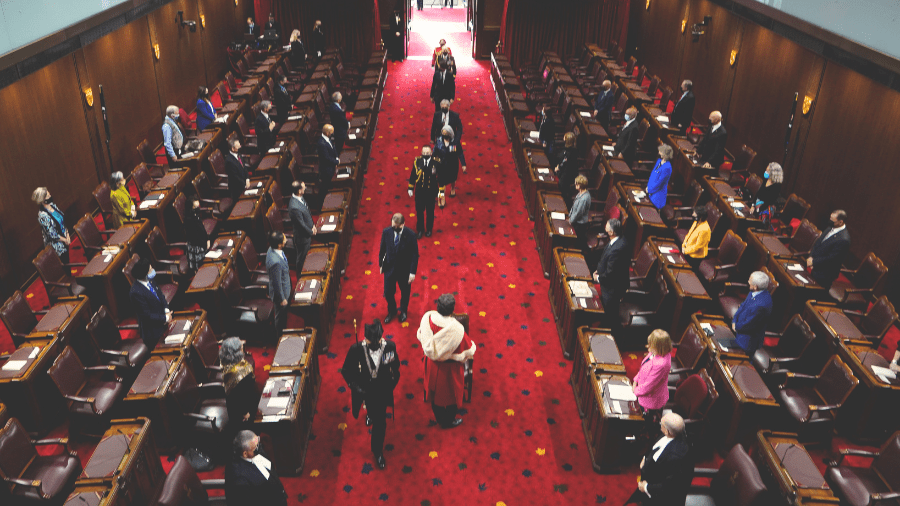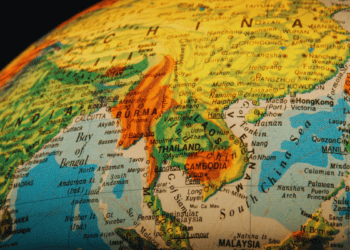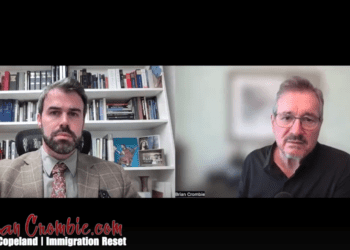By Patrice Dutil, August 8, 2023
Andrew Coyne, the Globe and Mail commentator, provoked a number of Conservatives when he asserted the obvious truth that in order to govern, a party had to enjoy the support of a majority of parliamentary seats. Its a self-evident point but some took exception, holding onto the illusion that all that what needed was a plurality of seats.
This comes from a party that has quietly allowed Pierre Poilievre to claim that he was running “for prime minister.” It might be catchy for a second, but it is also positively absurd in a parliamentary system, if not plainly immodest.
The convention is as obvious as day, and I feel embarrassed to have to point it out. Responsible government requires the support of the majority of the House of Commons. No support, no government.
It follows, therefore, that in order to form government in a parliament that is split among five parties, one of them must earn the support—at least the tacit support—from the others. It’s a hard lesson to learn, and it demands a remarkable discipline of power, but parliamentary systems around the world do it every day.
In Canada, Mackenzie King governed from 1921 to 1925 while holding exactly half the seats in the House of Commons. To keep working, he made sure he kept the emerging Progressive Party in his sights. When the government called an election in October 1925, it was hopeful of a solid win. Instead, it lost 18 seats, far short of the 123 seats needed for a majority. Mackenzie King lost his own seat in North York as did a number of his ministers. It was a humiliating result.
The Progressives were also decimated, going from 58 seats in 1921 to only 22 in 1925—a 36 seat loss. The Liberal-Progressive combination had gone from 176 seats to only 122. In terms of the popular vote, the Liberals had collected almost 40 percent of the ballots (quite respectable) and the Progressives almost 8.5 percent.
But it was still more than the Conservatives. Under Arthur Meighen, the party had surged, taking 66 seats and considerable votes in all provinces except Quebec (where it only won four seats and Saskatchewan, where it was entirely shut out). It had also surged in the popular vote, taking 46 percent of the vote (including almost 35 percent in Quebec), but still 2.5 percentage points less than the Liberals/Progressives.
King asked the Governor General, Baron Byng of Vimy, to resume the affairs of government. He ran in a by-election in Prince Albert (Sask.) and won a seat in parliament. Things seemed “normal” in the context of the roaring 1920s until revelations that ministers were taking bribes surfaced. King sensed that his coalition with the Progressives would not survive a vote, and asked Byng to call a new election.
Byng refused. The election mandate was still fresh, and it was entirely proper to offer the Conservatives the opportunity to form government. Meighen, true to form, remained as politically arrogant as he was clumsy, and displayed no ability to form government. His formation was defeated in a motion of non-confidence a few days later. Byng had no choice but to call for a new election and it was held in September 1926.
Byng’s fairness, of course, proved to be a hammer in King’s hands. The Liberal leader railed against “British interference” to some effect, and convinced a lot of people, taking 43 percent of the vote and taking 16 more seats while the Progressives took 11 (they also lost 11). It would still be a minority government, but the Progressives learned to play along for the next four years. There is a direct parallel between the NDP–Liberal alliance of today and the Progressives and the Liberals of 1926-1930.
Byng did everything right. No party has a “right” to form government unless it can command a majority of seats in the House of Commons. In theory, they all can make the attempt, but political calculations are usually easy to make and so reality quickly displaces theory.
In 1957, the Liberals under Louis St-Laurent won over 40 percent of the vote (3 percentage points more than the Diefenbaker Progressive Conservative Party) and it could have tried to govern with the Cooperative Commonwealth Federation (which had 25 seats). It would still be three seats less than the majority required, but could have been managed with the support of the four independent members from Quebec. But they declined, mostly out of exhaustion (the Liberals lost many cabinet members and Louis St-Laurent was now 75 years old).
In 1962, the shoe changed foot. Diefenbaker only won 116 seats (133 were needed to attain majority); 10 months later, following another election, his government yielded to the resurgent Liberals who now had 128 seats and who could rely on some support from the new NDP, led by Tommy Douglas. The Liberals inched closer to a majority in 1965 and finally secured one in 1968.
The Liberals under Pierre Trudeau won 109 seats in 1972, only two more than the Progressive Conservatives under Robert Stanfield. They struck a deal with the David Lewis NDP (which took 31 seats). A PC-Social Credit alliance might have been conceivable, but that combination did not come close to a majority of seats. The same could be said about a possible alliance between the Liberals and the NDP in the wake of the 1979 election: it did not constitute a majority.
There’s a hard lesson to be learned here. While I disagree with Coyne’s ahistorical assertion that “politics have changed” as a result of the Liberal-NDP agreement, there is no doubt that the Conservatives have to make greater efforts to forge a governing coalition. It’s as trite as it is obvious: The CPC has to go after urban voters as well as the electorate in Quebec and in Atlantic Canada. Barring that, it will have no better hope of forming government than the hapless Arthur Meighen did in 1926, Diefenbaker in 1962 or Joe Clark in 1980. Of course, they can wait for the wave of a crushing majority, as it happened in 1930, 1958, 1984 and 2011, but these take about 25 years to return (about a generation). By that count, the Liberals could be in some kind of government until 2040.
Patrice Dutil is a Senior Fellow at the Macdonald-Laurier Institute. His latest book is Statesmen, Strategists and Diplomats: Canada’s Prime Ministers and the Making of Foreign Policy (University of British Columbia Press)






